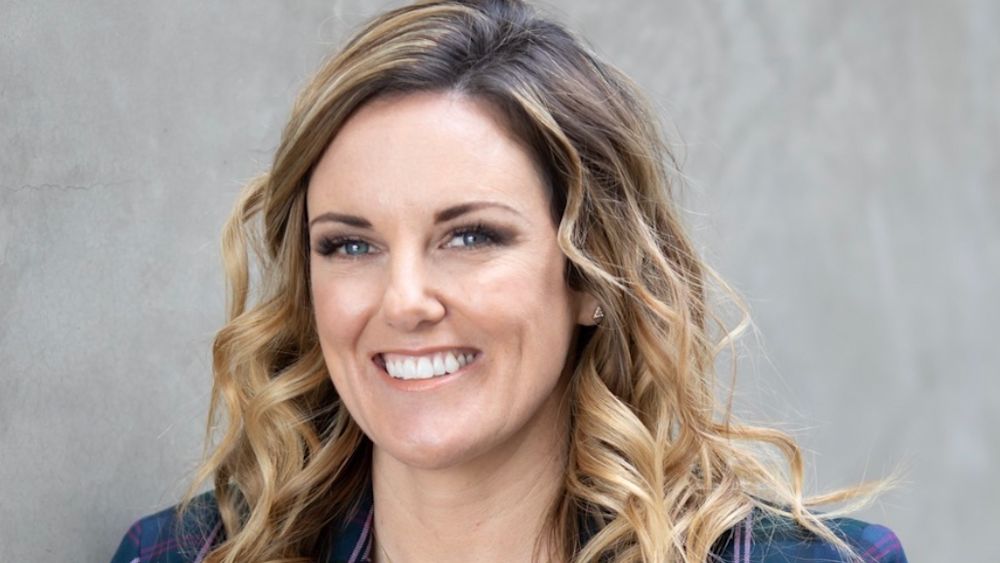How To Prioritize Transparency at Work, According to Ritual’s Chief People Officer
Table of contents
Jenn Cornelius explains how the wellness startup's growth has involved the intentional assembly of a talented team aligned with Ritual's vision of total transparency, backed by results.

Providing stability amid the shifting landscape of work
A decade at Apple, followed by work at sweetgreen, Simple Collective and Pinterest—Cornelius’s resume reads like a “best of” list. But even the most qualified Chief People Officer couldn’t predict the rocky relationship to in-office work teams have finding themselves navigating since 2020.
“When I joined Ritual, I knew there was an openness from our leadership team to rethink how and where our team works,” she told The Org. After learning cultural norms, she led Ritual to the decision to remain permanently distributed. In other words: forever hybrid. “I knew that because the way the team lived out our values even while remote, we’d be able to do this well and could cast a wider talent net attracting candidates from all over the country," she said.
Without requiring attendance inside a physical headquarters, Cornelius has had to prioritize creating moments of togetherness for teams. The concept is buzzy in today’s hybrid adjustment, but her efforts are refreshingly earnest. “Between our all hands weekly meetings, forum groups, book club and weekly in office lunches and our educational lunch and learn format, there are many opportunities for the team to get to know each other and learn from one another,” she said. “We see relationship building and learning from other’s as a part of our team’s daily responsibilities.” Encouraging time away and boundary-setting are two other ways Ritual’s CPO puts her ethos into action.
Creating transparency from the top down
Ritual is invested in , placing an emphasis on transparency in the literal sense with its see-through capsules, but also in the company’s commitment to leading honestly by example. For Cornelius, that means being an open book. “It usually starts with something like 'I am the mother of 3 incredible little girls and have the best husband on the planet.' I’ll share more details in-between, and I often get to the hardest part where I share that my magical 5-year-old daughter, Sinatra, battled leukemia for several years before she passed away. No one ever expects to lose a child, but sadly I have and I celebrate her and our family through our story. I’ll share what the experience has taught me and how I have built perseverance, resilience and a heck of alot of perspective so far in my life,” she said.
Leading through narrative allows Cornelius to meet team members where they are—wholly and authentically. “The more we can talk about really hard things, the more we can connect on our experiences at a deeper level and understand their impact,” she explained. The role of Chief People Officer depends on this unwavering commitment to identifying deeper meaning in groups. “While I’m not a therapist, I’m a really good listener and in a role that allows me to drive decisions that support our team, which is a responsibility I take very seriously,” she said.
The daily habits of a Chief People Officer
People are always changing, which makes the work of a Chief People Officer a particular challenge. But it’s part of what drew Cornelius to the work of solving organizational problems at the human level, which she calls “complicated, chaotic and inspiring.” She explains that the role is broken into two parts: Driving the People team's strategy and steering the business toward product success. “My purpose at Ritual is to make sure that our teams feel seen, heard, valued, celebrated and that we utilize their many talents,” she said.
Her mornings start early, around 5:30 am, when Cornelius, a self-proclaimed routine-lover, starts preparing for her day. She feeds her kids breakfast and drops them off at school, and does high-intensity yoga. Protecting her mornings means no meetings before 9 am. “ I know that for me taking the time to think, plan, process and decompress allows me to show up more effectively as a leader,” she said.
Founders File Q&A
If you could spend a day in another role at Ritual, what would it be?
I’m absolutely fascinated by what our product development team does. I think creating formulas, running clinical trials and doing research work is really incredible and I deeply admire and respect the craft that is developing a product, especially one with our standards.
What's the best advice you would give to someone looking to create meaning for the teams they manage?
To create meaning for others you have to start by having a clear purpose for yourself and your role in the organization, because that helps you create a vision and meaning for the team. I’d also say it’s important to know your limitations and don’t be afraid to admit them to others. People love to know that there is room for their expertise and it's wonderful when you have assembled a set of skills on a team that have a level of interdependence. I always think about building my own team as an orchestra – each person has a role, but the symphony happens when they are playing together.
Sign up now:




